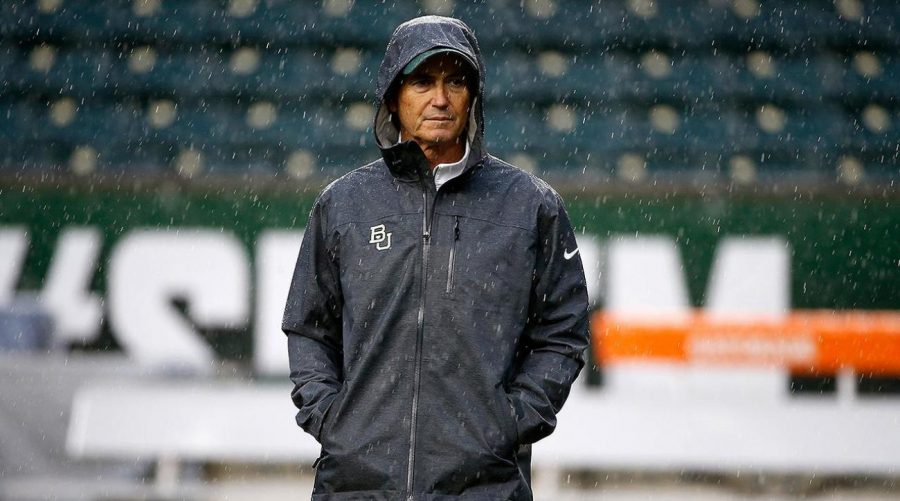Viewpoint: Sports are not above ethics
November 18, 2016
Sports are not above ethics
College sports are an integral part of American culture; million dollar programs and countless droves of dedicated fans every Saturday have culminated in a booming industry with no signs of slowing down. In the past decade there have been a string of scandals in college sports where athletics have been placed above basic ethical principles on the hierarchy of importance. Baylor University’s football program neglected to handle sexual assaults properly, Pennsylvania State University enabled a football coach to act as a sexual predator, and Louisville basketball paid an escort service to entertain potential recruits on campus visits, just to name a few.
For an in depth view we will focus on football. Total generated revenue for many college football teams is astronomic compared to other sports. In 2015 Forbes Magazine estimated that The University of Texas football team earned the school 152 million dollars, while The University of Alabama (perennial national championship contenders) reigned in a mere 97 million. The profitability of the sport makes it attractive for academic institutions to keep misconduct in the program repressed from the public; therefore it will not be discussed in national media, or to avoid potential sanctions from the National Collegiate Athletic Association.
DeAndre Levy, a linebacker for the Detroit Lions and former Wisconsin Badger, recently professed that accidentally breaking former Penn State head coach Joe Paterno’s leg in a game was his “proudest college moment.” This being due to Paterno knowing of child molestation by a member on his coaching staff and refusing to report it, allowing it to continue on for many years. Statements such as Levy’s are not unique because they speak against questionable ethics, but because they are from an actual athlete involved in the sport being discussed. The sentiment in Levy’s words is reiterated throughout many sports fans appalled at the actions of others, but unfortunately it falls by the wayside whenever kickoff begins.
To put into context what fans ignore each year one must only look at specifics of each case to recognize the systematic lack of care regarding ethical considerations in association with athletics. In Baylor’s instance specifically, the university had to be coerced by outside pressure into hiring a law firm, Pepper Hamilton LLP, to look into what occurred at the private Baptist school. Pepper Hamilton concluded that “specific failings within both the football program and Athletics Department leadership, including a failure to identify and respond to a pattern of sexual violence by a football player, to take action in response to reports of a sexual assault by multiple football players, and to take action in response to a report of dating violence.” A full and detailed report has yet to be released to the public for various reasons.
In an interview with the Entertainment Sports Programming Network former Baylor head coach Art Briles lamented these findings with comments such as: “I think we did the best we could at the time,” and recognized he had been involved with “bad things,” while never even uttering the words rape or sexual assault. While it may seem like a professional franchise at times because of the magnitude of college football, it should not be forgotten that Briles still was person of authority at an academic institution.
This is the leader of hundreds of young men who is supposed to disseminate guidance and values among them as they mature and progress into the real world. The lack of accountability among not only Briles but also many others involved in any of these countless scandals needs to end.
Many fans are willing to acknowledge the unscrupulous transgressions and protest them as well, however, this channeled anger regarding ethical infractions generally diminishes over time. Sports tend to reclaim their place at the top of the hierarchy in a few short years. The NCAA has also imposed sanctions for all instances already listed, but just as with fan dismay, those will end in the near future too. It is a nearly unanimous consensus that sexual assault and child predation are glaringly sordid actions and demand formidable consequences, yet whenever a new football seasons begins fans overlook the systematic failures of their beloved universities.
Whether it is “the death penalty,” which is ending the program permanently for a specific amount of time, or fan boycott, a change must occur to hold universities and those involved accountable. As fans we are the driving force behind why college athletics are so successful, it is now up to us to demand better. We must hold those in charge to a higher standard, or history will continue to repeat itself.






